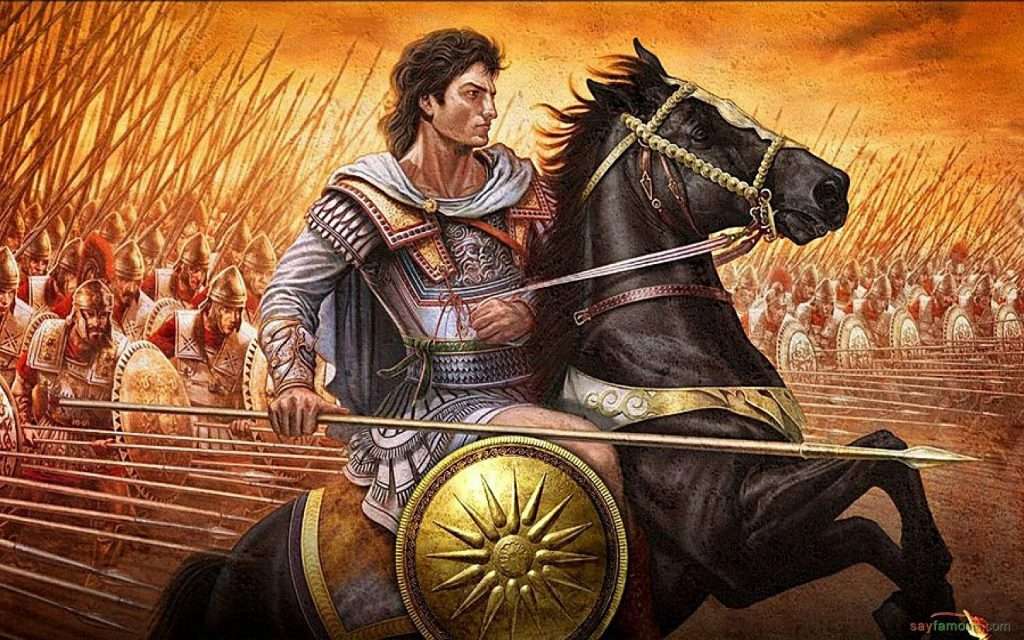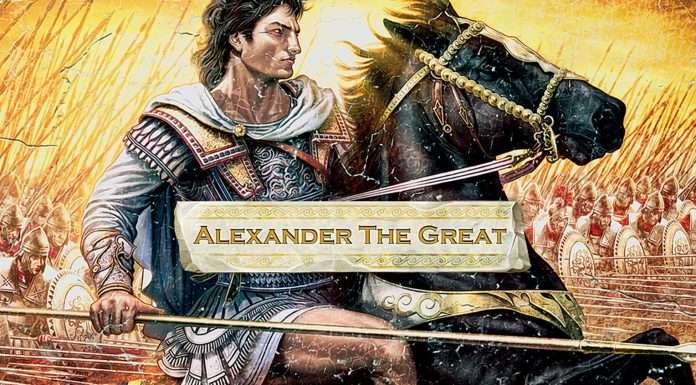Who does not know the name of Alexander? Alexander is a household name. His real name is Alexander III. He was a king of Greek kingdom of Macedon. Popularly he is known as Alexander, the great. He was born in July, 356 BC at Pella in Ancient Greece. He succeeded the throne after his father Philip-II’s death at the tender age of 20. Almost throughout his life he spent in military attacks in Western Asia and North Eastern Africa. At the age of thirty, he became emperor of a vast empire from Greece to North western India. He was an undefeated commander in World history.
In his childhood, he was tutored by Aristotle, the Greek philosopher, till the age of 16. His father Philip was murdered in 336 BC at Alexander’s sister’s wedding. After his father’s death, Alexander became the king of Macedon. After conquering the city of Thebes, Alexander became the Greek general.
Then he started his campaign against the Persian empire and it lasted for 10 years. Alexander conquered Asia Minor (Turkey) also. Alexander defeated Darius-III and occupied the entire Persian empire. Alexander’s empire stretched from Adriatic Sea to the Indus river. He wanted to conquer the whole world. So, he invaded India in 326 BC. In the battle of Hydaspes a fierce battle took place between Alexander and King Porus. Although Alexander was victorious, he was astonished and pleased with the bravery of Porus and asked –
“What kind of behavior, you want?” Porus replied – As befits a King. Being pleased with his sense of dignity, Alexander returned his kingdom to Porus.
Then his home sick soldiers did not want to advance further into India as they were likely to face more dangerous resistance from Indians. So, they went back. And on the way, Alexander died at Babylon. Alexander had conquered Phoenicia also.
Alexander’s campaign helped cultural diffusion. He went through myriad countries of myriad cultures. He founded more than twenty cities. Most famous was Alexandria in Egypt. Two things were famous in Alexandria – one was its bazaars and another was its library. Alexander became a classical hero. His military achievements were marvelous. His cent percent of victory in the battles made him a model of commander. A saying of folklore says –
“ Yojeeta, wahi Sikander”
(One who wins is Alexander Sikandar).
It may be mentioned here that in Vishnu Purana of Hinduism, it is mentioned that the legendary King Mandhata conquered the then world in one day.
When Alexander came through the forests of India, he saw many persons sitting on the ground with closed eyes for long hours. It seemed peculiar to Alexander. He asked his men – who are these persons and why they are sitting in closed eyes? His men replied that they are the sages of India. They are doing penance to get spiritual powers. They warned Alexander that he should not interfere with the sages – they might curse him.

In the Nrusingha Purana there is a similar description of Murasura (the demon Mura). Are Alexander Murasura, the same person? It needs further and extensive research.
As Alexander was a great military man, we should know something about his physical appearance. Greek Historian Plutarch has written –
“The outward appearance of Alexander is best represented by the statues of him which Lysippus made, and it was by this artiste alone that Alexander himself thought it fit that he should be modelled. For those peculiarities which many of his successors and friends afterwards tried to imitate, namely, the poise of the neck which was bent slightly to the left, and the melting glace of his eyes, this artist has accurately observed. Apelles, however in painting as wielder of thunderbolt did not reproduce his complexion, but made it too dark and swarthy. Whereas he was a fair colour, as they say, and his fairness passed into ruddiness on his breast particularly, and in his face. Moreover, that a very pleasant odour exhaled from his skin and there was a fragrance about his mouth and all his flesh, so that his garments were filled with it, this we have read in the memoirs of Aristoxenus.
Jawaharlal Nehru in his book – Glimpses of World History, has written that Alexander was a conceited man. To some extent it is correct. Example – when Alexander invaded Phoenicia, the Phoenicians wanted that the Greek Hero should not enter the precincts of the temple of Melkarth, the most reverent place for the inhabitants of Phoenicia. This touched Alexander’s pride. He became more ferocious and massacred the people of the city of Tyre.
But, although an invader, Alexander was saying – All the peoples of the World are my brothers and sisters. This shows his bonhomie nature. In world history, Alexander’s name is yet to be surpassed. At last we may say – For a tired and timid generation Alexander was the necessary man.
(The views expressed are the writer’s own.)

Radhakanta Seth is an Income tax officer in Sambalpur. He is a freelance writer and his articles have been published in some Oriya dailies like Sambad, Samaj, Dharitri, and English dailies like The Telegraph and in a sociological journal ‘Folklore’ published from Kolkata.
He can be reached at [email protected]

